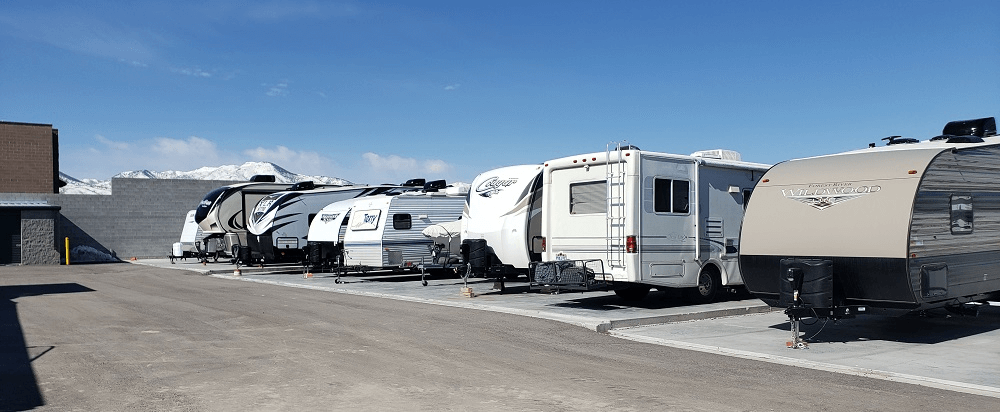
Sadly, camping season is over for many in areas where snow is starting to fall and temperatures have started to drop. Most campgrounds have closed for the winter and so it's time to pack up the trailer for the winter too.
Keep reading for RV trailer storage tips to help make life easier now and when you are pulling it out for the summer again.
Water damage can be an expensive and annoying issue. There are some steps you can take to avoid damage due to water.
The first thing you want to do is make sure all the water lines are drained. In the winter months when things freeze you don't want things bursting and getting ruined.
You also want to avoid water damage caused by dampness and moisture getting into your RV trailer. You can use silica gel (like you find in pockets of new clothes), Dry Rid, or another moisture prevention product to help avoid mold.
You'll need to prepare all the appliances and electrical aspects of your RV for storage.
Your fridge and freezer need to be defrosted and cleaned. You'll want to make sure they are completely dry before closing them up or they'll smell stale when you go to use them after a few months.
You won't be using any electricity or power while it's in storage so you may as well take care of batteries and the electrical system by turning off the circuit breaker that runs appliances and gives you power when camping.
As comfortable as your RV is, you don't want rodents and critters making it there winter abode. Try to cover and plug any holes or areas where animals could get inside.
They can do a lot of damage if they start pulling things apart or chewing on wires. You may want to throw some mothballs. Many people find it beneficial to store their camper in a pest free and covered RV & travel trailer storage facility to avoid any chance of infestation of any kind.
Make sure there is no food or items that will attract pests. Even unopened containers of items like toothpaste, soap or canned good can end up attracting animals if the can freezes and explodes or the animal can smell vanilla in a bar of soap.
If you can protect your RV from the winter elements as much as possible, it'll last longer and you'll have less work to do when getting it ready in the spring or summer.
If you park your RV trailer outside, ensure it is on solid ground that won't sink during the spring thaw. It's a good idea to go through an RV maintenance checklist before parking it for the winter.
You may want to use expanding foam or silicone spray to plug any holes and offer protection for hoses, wires, and pipe connections.
Cover your RV trailer with a tarp if you can so that there is less damage to the exterior of your camper.
You might want to invest in tire protection covers as well so that there is minimal snow and sun damage while it is just sitting there.
One of the easiest RV trailer storage tips is to rent a storage space so that all you have to do is drive it in and then drive it out when you're ready to use it again.
Connect with us about storing your RV trailer this winter.
